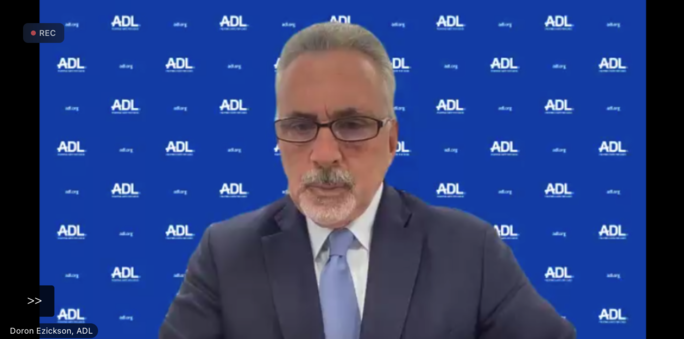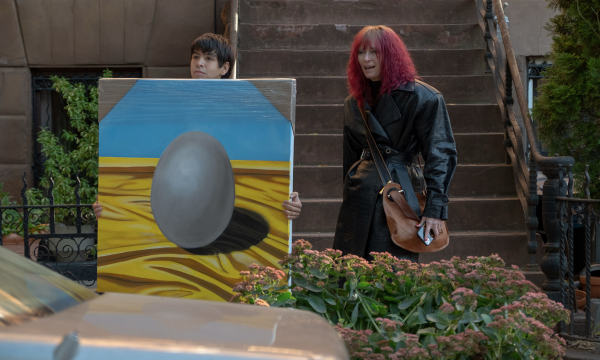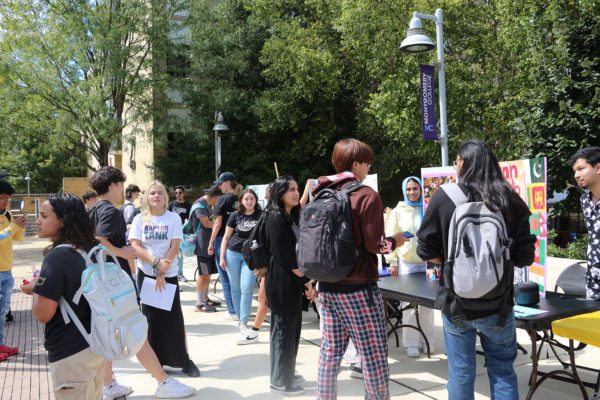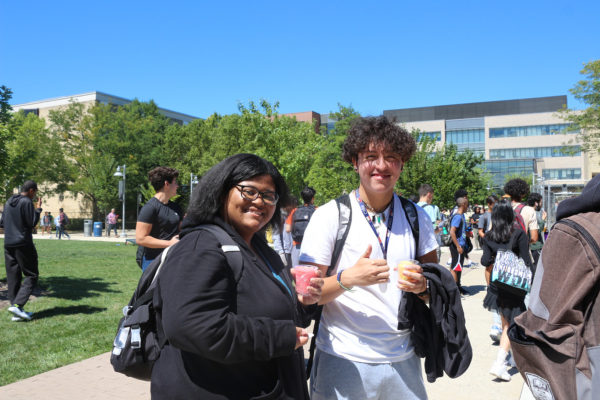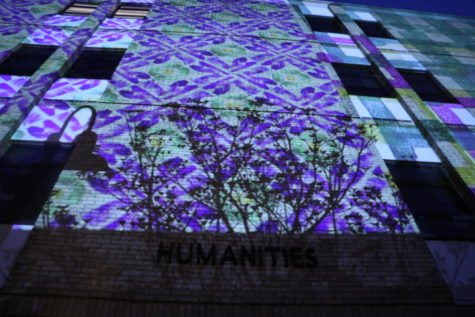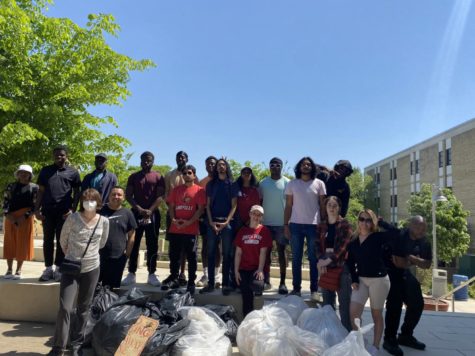Paul Peck Humanities Institute Presents Antisemitism: Understanding & Responding to its Roots at Montgomery College
A collaborative virtual fall 2021 event by The Frank Islam Athenaeum Symposia Speakers Series with the 7th Annual Bella Mischkinsky Memorial Lecture.
On November 9th, The Frank Islam Athenaeum Symposia Speaker Series held its last virtual event of Fall 2021. Titled, “Understanding and Responding to Contemporary Antisemitism”, the seminar was led by guest speaker Doron Ezickson, Vice President of the Mid-Atlantic/Midwest Division at Anti Defamation League (ADL). Opening remarks were provided by Fiona Glade, Montgomery College’s Dean of the English Language for Academic Purposes, Linguistics, and Communication Studies Division; Professor Sarah Ducy, Director of the Paul Peck Humanities Institute; Ken Jassie, Professor of Art History at MC, and Coordinator of Holocaust Education Programs. Mr. Doron Ezickson discussed the historical roots of antisemitism and its relevance in modern society.
Guest speaker Doron Ezickson is a political and social activist and former judicial law clerk for the U.S. Court of Appeals for the DC Circuit. He received his A.B. from Dartmouth College in Western Asian Studies, and J.D. from Boston University. Over the years, Ezickson has been admitted into various prestigious practices including the U.S. Supreme Court but decided to join the anti-hate organization, ADL, in 2017, as Regional Director of the Washington, DC office. With ADL, Ezickson has worked with various teams from across the country, moving between Chicago, Detroit, Cleveland, Philadelphia, and even Washington, DC. He is a recurrent speaker and media commentator on acts of antisemitism and hate crimes. In past years, Ezickson has testified in front of state legislatures and the US Civil Rights Commission. Working passionately, Ezickson has devoted his knowledge and time to the battle against antisemitism.
Opening his seminar, Ezickson described antisemitism as, “a form of prejudice [that] targets both individuals and generically Jews as a group.” In both religious teachings and political or social efforts, antisemitism has been utilized as a mechanism for Jewish suppression. Ezickson noted antisemitism at the beginning of Jewish history. “The delegitimization, the demonization and application of double standards are themes in history in many countries and regimes to target Jews.” Essentially, Ezickson expressed that antisemitism was and continues to be used throughout history as a tool to impose harmful tropes onto Jewish people. For years, these tropes have painted Jewish people as, “untrustworthy, disloyal, alien, greedy, and polluted,” as stated by Ezickson.
Ezickson supplemented his lecture with quotes by Black activist Barbara Smith, and gender, racial, and ethnic activist, Eric K. Ward. Ezickson briefly touched on how people unconsciously partake in antisemitism. “I am antisemitic… I have swallowed antisemitism by living here whether I wanted to or not,” (Barbara Smith). Honing in on modern-day society, Ezickson elaborated on the hateful elements ingrained within the core of antisemitism. He described ways in which discrimination, stemming from religious, political, and societal ideologies, contributed to the great stigma surrounding Jewish people. Ezickson claimed that there are several facets of antisemitism. Factors such as power, disloyalty, and denial; characteristics creating a shared history — the root of the Jewish experience.
Ezickson’s presentation addressed the growing manifestation of antisemitism in contemporary society and spoke clearly on ways Jewish people have historically been denied rights of existence and identity. When discussing antisemitism in light of today, Ezickson stated, “You can not act out of hatred; if you want to live out of hatred that’s your burden.” Ezickson consistently highlighted the importance of advocacy, activism, and public engagement. He illustrated how antisemitism and its history intersect with other forms of discrimination, such as anti-blackness, homophobia, and misogyny. “Antisemitism is the oldest hate, it is central to the white supremacy that justifies violence against all minorities,” declared Ezickson. Ceasing the excessive exercising of power and limited toleration towards other religions is key to eradicating antisemitism today.
As we neared the end of the seminar, Ezickson directed his final words towards the youth: “Education is the antidote,” he said, reinforcing the significance of guidance and willingness to learn. Ezickson spoke of ways to aid in the fight against antisemitism through organizations and other community resources. More than anything, Ezickson fervently encouraged students and faculty to seek out partnerships, communities, or engage in local leadership programs, teachings, and internships through Montgomery College and beyond. In closing, Ezickson noted, “We need to understand each other’s history, each other’s story, each other’s oppression in order to unite in the name of a better America.”


